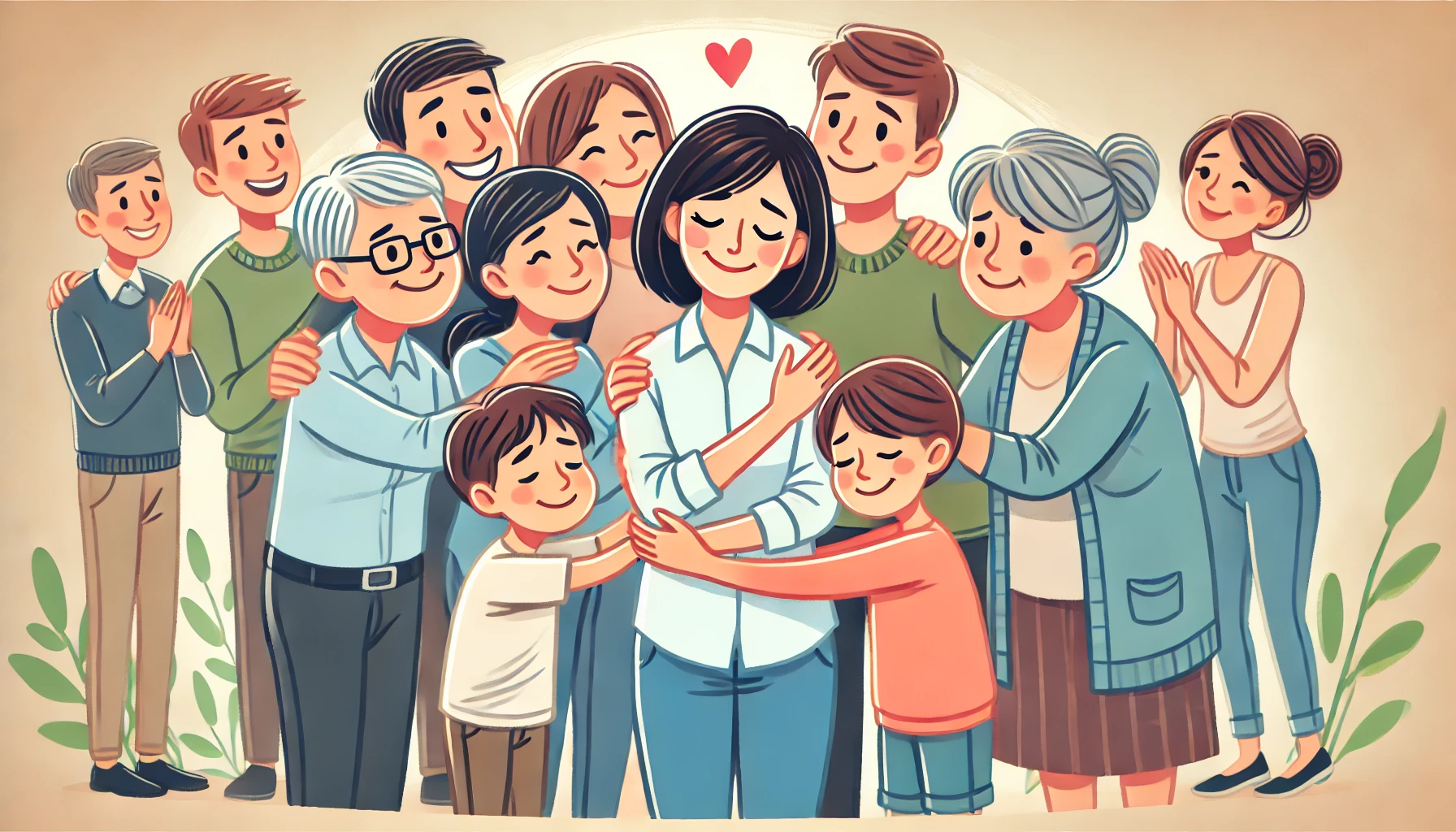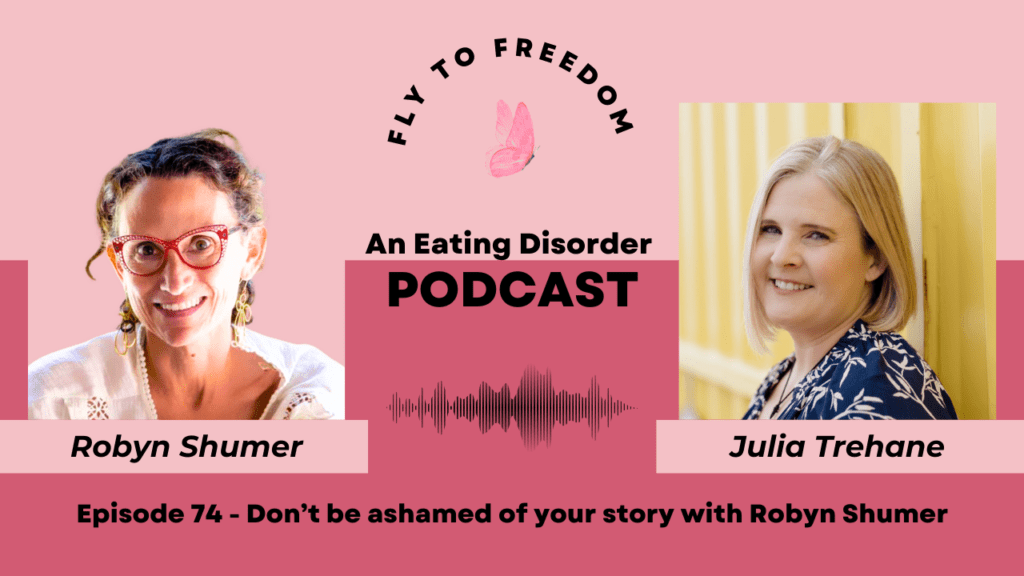Eating disorders, particularly anorexia, thrive in secrecy, isolation, and shame. These disorders feed off silence, making it harder for individuals to find the courage to seek support. However, opening up about your story can be one of the most powerful steps in your recovery journey. Sharing your experience not only helps break the cycle of shame but can also provide a pathway to healing. As an anorexia recovery coach, I’ve seen firsthand the transformative impact that storytelling can have on the recovery process.
The Shame Factor in Eating Disorders
Shame is a pervasive emotion in eating disorders like anorexia, bulimia, and binge eating disorder. It often stems from negative beliefs about one’s body, behaviors, or perceived lack of self-control. Research shows that shame can contribute to the persistence of eating disorders by reinforcing feelings of unworthiness and isolation. According to the National Eating Disorders Association (NEDA), shame can lead individuals to hide their behaviors, further entrenching the disorder.
However, the truth is that eating disorders are not a reflection of one’s character or moral failing. They are complex mental health conditions influenced by a combination of genetic, psychological, and environmental factors. The more we internalize this reality, the easier it becomes to release the shame that keeps us stuck.
The Importance of Sharing Your Story
When you find the courage to share your story, profound changes can happen. Neuroscientific research indicates that storytelling activates areas of the brain involved in emotional regulation and stress relief. Studies have also shown that sharing personal narratives helps individuals process trauma, create meaning, and foster a sense of connection with others. This is particularly important in the context of anorexia recovery, where isolation can worsen the disorder.
By verbalizing your feelings, you provide clarity for yourself and begin to release pent-up emotions. Sharing your experience is a form of self-acceptance, and it helps you realize that an eating disorder is a treatable illness—not something to be ashamed of.
When you tell your story, you’re not only healing yourself but also contributing to the destigmatization of eating disorders. Your vulnerability has the power to educate, inspire, and offer hope to others who may be suffering in silence. This creates a ripple effect of support and understanding in the broader community.
The Science Behind Storytelling in Recovery
Scientific evidence supports the mental health benefits of sharing personal stories:
– Emotional Processing: Sharing your story helps your brain reframe difficult experiences, which can reduce the emotional charge surrounding them.
– Self-Compassion: Speaking openly about your struggles allows you to acknowledge and accept all parts of yourself with kindness, which is crucial in recovery.
– Neuroplasticity: Verbalizing your experiences can literally reshape your brain, helping you form new, healthier thought patterns over time.
– Community and Connection: Human beings are wired for connection. Storytelling promotes a sense of belonging and helps dismantle the loneliness that often accompanies eating disorders.
Research published in JAMA Psychiatry has shown that connection and emotional openness play a critical role in reducing eating disorder symptoms. The act of sharing helps you break free from the isolation and secrecy that perpetuate the illness.
How to Share Safely and Effectively
It’s essential to share your story in a way that feels safe and supportive. You have full control over when, how, and with whom to share the details of your journey. For some, starting with a trusted therapist or joining an online recovery community can provide the necessary emotional safety net.
The goal isn’t to rehash every painful memory but to grieve your experiences while cultivating self-compassion. Take your time and be selective in choosing when and where to open up. It’s crucial to ensure you don’t become overwhelmed by your vulnerability.
As a recovery coach, I recommend sharing in bite-sized pieces, especially if it’s your first time. The act of sharing doesn’t need to be perfect—just honest. By taking that first step, you’ll find that the shame starts to dissipate, making room for healing and recovery.
Sharing Your Story Can Strengthen Your Recovery
Many people in recovery from anorexia report that sharing their story becomes a pivotal moment in their healing journey. It disrupts the toxic patterns of secrecy and self-isolation that keep the disorder alive. By putting words to your disordered thoughts and behaviors, you gain clarity on the issues at hand and are better equipped to address them.
Sharing also brings unresolved emotional wounds or life stressors to the surface, giving you an opportunity to work through them in a healthier way. As you continue to share your story, you’ll notice that it loses its power to control you. Instead, you reclaim your voice, your strength, and your hope for recovery.
As you begin to open up, remember that your story is a testament to your resilience. Sharing it can be a catalyst for deeper healing—not only for you but also for others walking the same path. If you’re looking for additional support on this journey, I offer personalized coaching to help individuals find their way to full recovery from anorexia.
You can learn more about my services follow me on Instagram for daily inspiration, or tune into my podcast for more recovery insights. Don’t forget to sign up for my email list to receive daily mantras and encouragement directly to your inbox. You can sign up at the bottom of this page
This podcast episode is a fantastic accompaniment to this blog post. Have a listen by clicking on the picture
Action Steps for Sharing Your Story
If you’re ready to take the brave step of sharing your anorexia recovery journey, here are five action points to help guide you:
- Identify Three Sources of Shame: Reflect on why you might feel ashamed about your eating disorder. Are these beliefs based on facts or internalized stigma?
- Write Your Story with Compassion: Take the time to write out your story from a place of self-compassion. Avoid judgment or self-criticism. When you’re ready, read it aloud to yourself.
- Choose a Safe Space to Share: Start small by identifying one safe person or community where you feel comfortable sharing a portion of your story. It could be a friend, therapist, or an online support group.
- Prepare Yourself for Vulnerability: Before sharing, visualize yourself releasing layers of shame and letting go of the burden you’ve been carrying. Breathe deeply and approach the moment with self-kindness.
- Self-Care After Sharing: After you share, take time to nurture yourself. Do something soothing like taking a walk, making a cup of tea, or reaching out to a friend for support.
—
If you’d like me to help you through your recovery, with proper, effective, science backed techniques and everything you need to create a better life, free from your eating disorder, reach out to me and take that 1st step. Oh, and this part is free of charge by the way!


